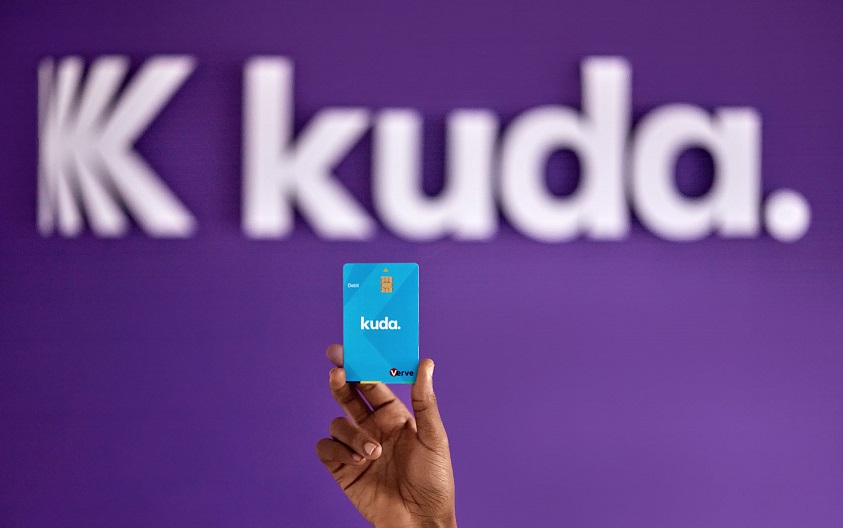When Nigerian fintech startup Kuda, which aspires to be Africa’s first fully-fledged digital bank, announced its US$25 million Series A round in March, many were surprised that it came so quickly after its seed round, which was only announced in November of last year.
Launched in 2016 as lending platform Kudimoney, Kuda rebranded in June of 2019 and received a banking licence from the Central Bank of Nigeria (CBN) to launch a full service digital bank. That regulatory approval made Kuda Nigeria’s first and only full-stack and mobile-first bank, allowing Nigerians to run a current account, save money, and earn annual interest.
Disrupt Africa reported in March the startup had raised US$25 million in Series A funding in order to help it fund its aggressive growth plan, with the round coming hot on the heels of the startup’s US$10 million seed round, which was only concluded last November. But why the haste?
Speaking to the latest edition of Disrupt Podcast, Ryan Laubscher, Kuda’s chief operating officer (CCO), said the short timeframe between rounds was due to a number of factors, including the company’s speedy growth, global economic considerations, and a great opportunity presenting itself in the form of Valar Ventures approaching it with an interest in investing.
“We had been growing so fast over the last 10 or so months that we felt given the economic outlook globally, which was and remains fairly clouded, it was a good idea to buffer our reserves in terms of making sure we had capital available,” he said.
“It was also probably the right time to raise just in terms of our growth ambitions. It was gratefully received. They are a fantastic, high quality group.”
Laubscher said Kuda now feels it has got the right amount of capital to pursue the aggressive growth plans it has over the next 12 months.
“It is important to make sure that as you need capital, as you spend capital on R&D, on making sure we build incredible products, on providing amazing customer service to our customers, that we have that capital available to us,” he said.
“The company is barely two years old. We have experienced growth that has even caught ourselves by surprise. We need to flesh out our product suite. We have some strong transactional products but we need to expand into various credit products.”
He said Kuda was busy building a team in Cape Town around doing just this, while it was also adding staff more generally.
“We also need to buffer out some of our senior positions. Some of the capital is going to be used to recruit very high calibre experienced senior leaders,” said Laubscher.
Generally, the funding is “fuel” for the growth that lies ahead, with customer service a key area.
“With a new bank, the first thing you want to do is to establish trust with your customers. And trust can be done by providing people with excellent products and services, but it is also about making sure if there are any issues we are able to assist our customers in as close to real-time as possible,” said Laubscher.
“The real driver for us is to build trust, which hopefully builds a deposit base, and with the deposit base we should be able to start looking at various new credit products that essentially turns us into a real bank.”
Building a bank is a serious task, but Kuda believes it has the ability to do it digitally at a quick pace.
“It is definitely something we can do in a couple of years. At the end of the day we have got to keep it simple. We have got to provide a way in which people can deposit their capital, and a user interface that is beautiful to use and is seamless and efficient,” Laubscher said, adding that Kuda plans to lean heavily on data to build the best possible products, and also wanted to expand by building SME-focused products.
Disrupt Africa recently announced it is to make Finnovating for Africa 2021, the third edition of its deep-dive into the continent’s fintech space, free to all as part of an open-sourcing initiative alongside partners that include Kuda. Laubscher explained the company’s reasons for supporting the initiative.
“We at Kuda are delighted to be working with Disrupt Africa, which is providing the data and research which is crucial for founders building businesses in Africa, and which up until this point in time has been prohibitively expensive for founders to access. So the ability to access this calibre of research is essential for the growth that we forecast to take place,” Laubscher said.
—
The latest episode of Disrupt Podcast is available now, featuring in-depth interviews with Laubscher as well as a host of other Nigerian fintech founders in what is a bumper double edition.
You can listen on Soundcloud, Spotify, Apple Podcasts, and all other podcasting platforms.


